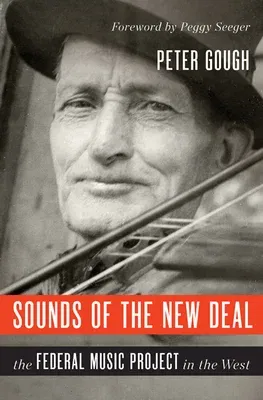Peter Gough
(Author)Sounds of the New Deal: The Federal Music Project in the WestHardcover, 1 March 2015

Qty
1
Turbo
Ships in 2 - 3 days
In Stock
Free Delivery
Cash on Delivery
15 Days
Free Returns
Secure Checkout

Part of Series
Music in American Life
Part of Series
Music in American Life (Hardcover)
Print Length
304 pages
Language
English
Publisher
University of Illinois Press
Date Published
1 Mar 2015
ISBN-10
0252039041
ISBN-13
9780252039041
Description
Product Details
Author:
Book Format:
Hardcover
Country of Origin:
US
Date Published:
1 March 2015
Dimensions:
23.83 x
17.63 x
1.96 cm
ISBN-10:
0252039041
ISBN-13:
9780252039041
Language:
English
Pages:
304
Publisher:
Weight:
671.32 gm